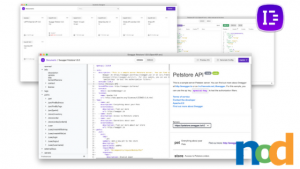WWW… Wednesday! Medusa
by Taylor Slattery | October 5, 2021
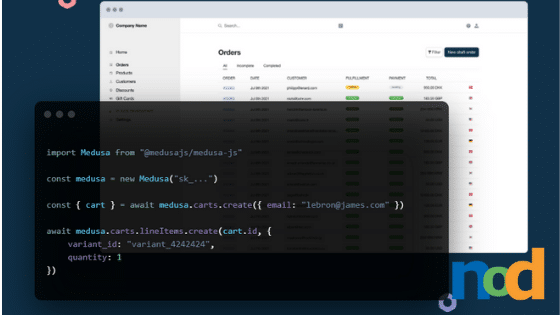
For any small business, e-commerce is an essential part of business. In the early days of a new business, where cost and ease of use are of primary concern, most will choose to go the route of established platforms like Shopify, Wix, or Big Cartel. While these platforms offer small businesses the ability to set up shops with all the integrations they need for a modest fee, they can affect the business’s ability to scale effectively later on down the road.
Having the entirety of your business’s operations on a platform like Shopify means that you don’t have true ownership over your business. This can also lead to headaches if in the future you need to switch fulfillment services only to find that the platform itself doesn’t offer the integration you need. Utilizing a commerce engine like Medusa that grows alongside your business will make it easier to scale and adjust operations as necessary.
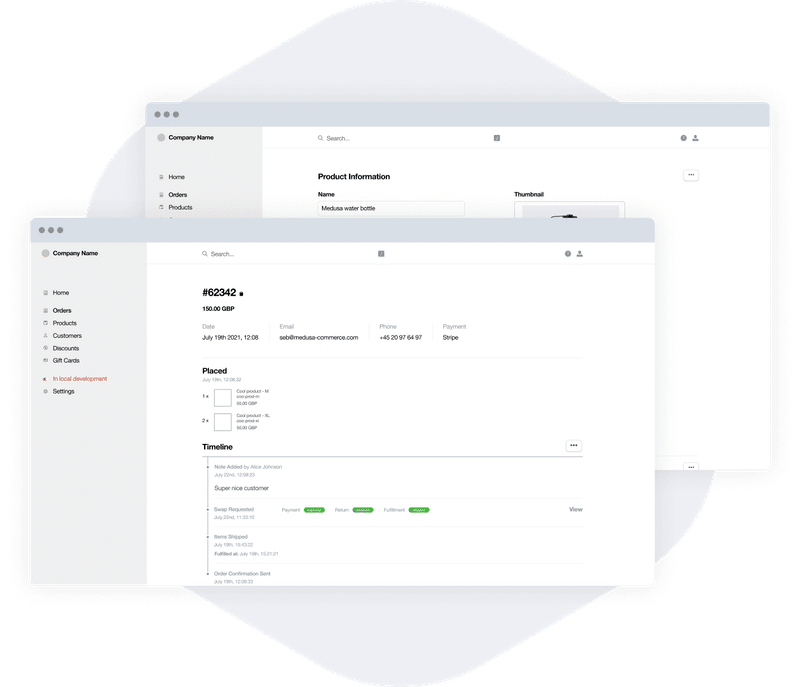
Medusa is a headless e-commerce API, meaning that it can be adapted to any form you see fit. Whether you’re working on an e-commerce site, an app with in-app purchases, or any other application for which you need to collect payment, Medusa offers a suite of features that make it an option worth considering.
The strength of Medusa is its flexibility. Because of its highly customizable and headless nature, Medusa can be adapted to a variety of e-commerce applications, from typical shop experiences like those offered by Shopify, to more custom-tailored use cases like providing the backend for the commerce portion of an app. Out of the box, Medusa boasts a collection of features that make setting up your custom commerce engine a breeze.
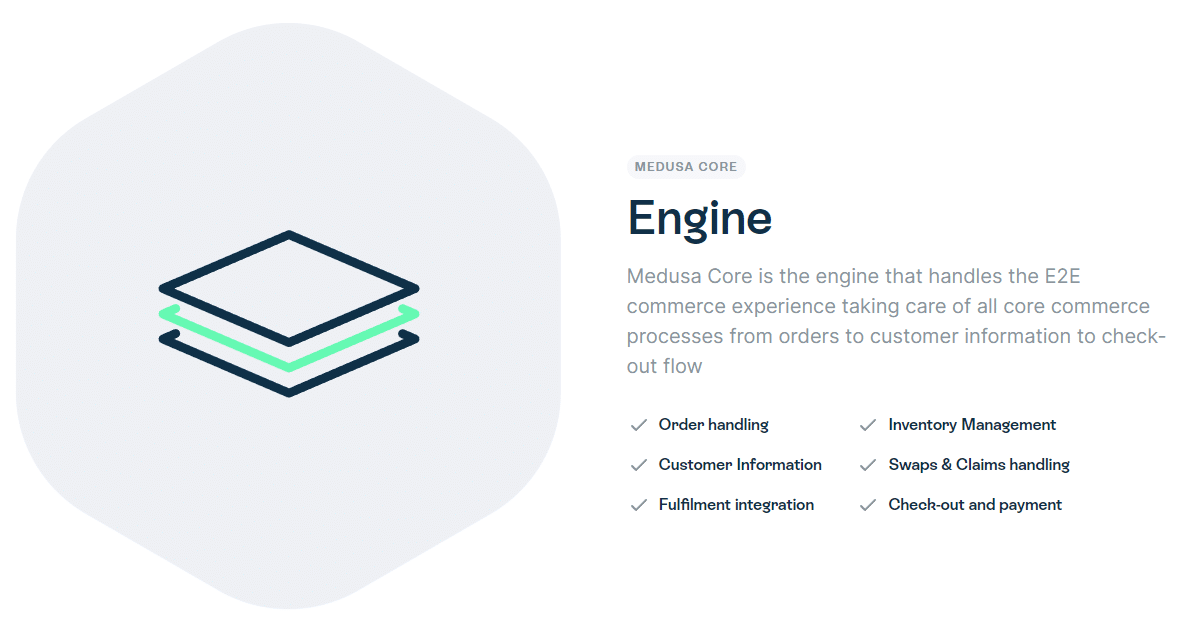
Medusa features all of the elements you would expect from an e-commerce platform, without any of the arbitrary limitations that often come with plan-based platforms and website builders. Products can be stocked with as many options and variants as you need and features often withheld for more premium plans, like customer logins and wishlists, are included as well.
Swaps and claims for customers who experience issues with the orders or mistakenly purchased the wrong item are handled via automation, making customer service stress-free. Replacement items, returns, and refunds can all be processed via plugins to keep you focused on the parts of your business that will lead to growth.
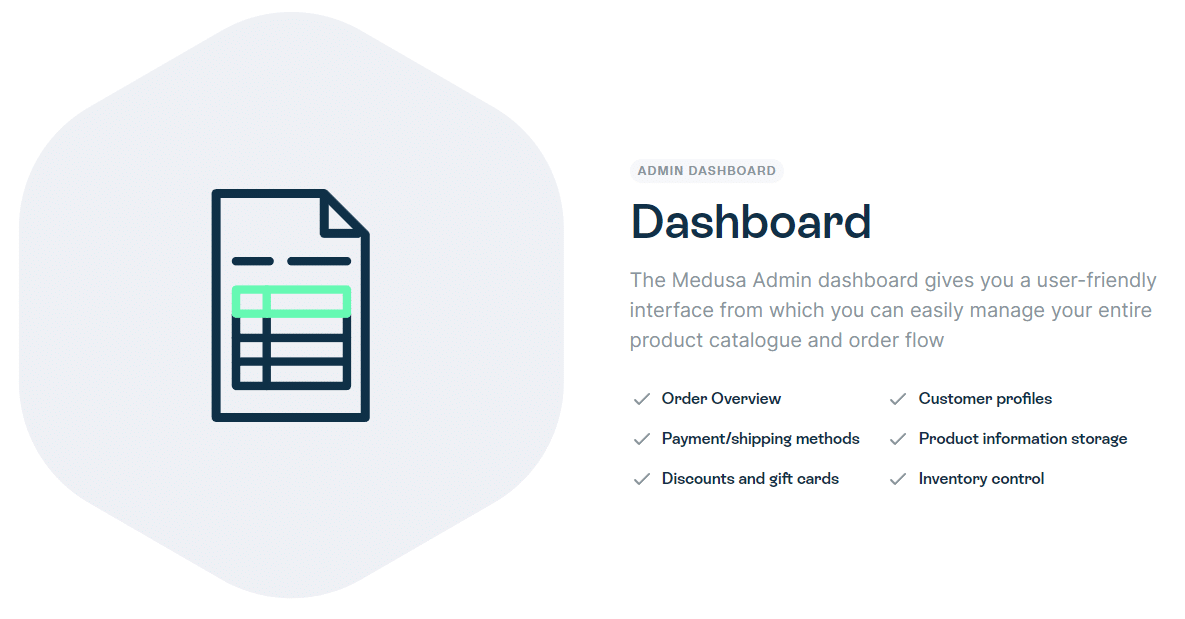
Medusa handles payments and fulfillments with integrated APIs and plugins for major providers like Stripe, Paypal, and Klarna, while handling region-specific information like currency and local shipping automatically. Because it’s open-source, Medusa’s utility is bound to grow as more users adopt it into their work and new creative ways of integration emerge.
You can learn more about Medusa and try it out for yourself here.

Taylor is the Managing Editor of Notes on Design. Taylor is a graphic designer, illustrator, and Design Lead at Weirdsleep.






